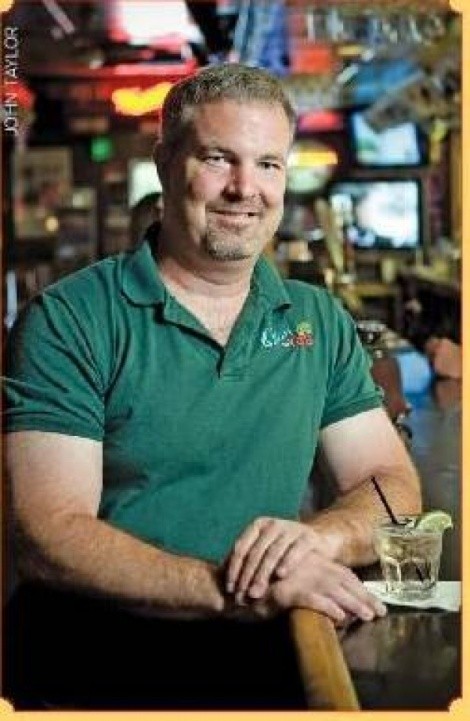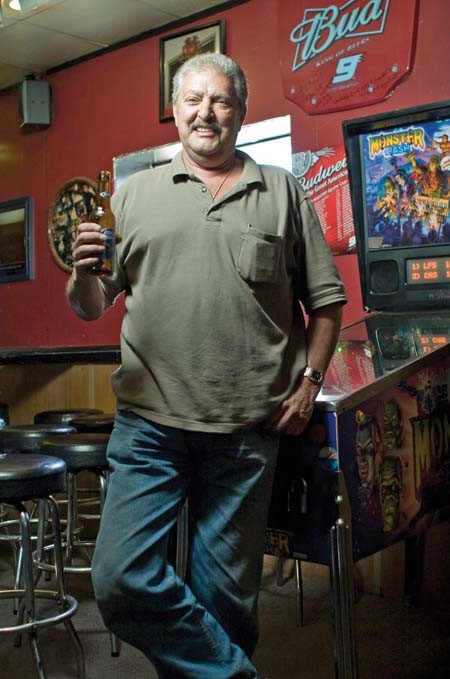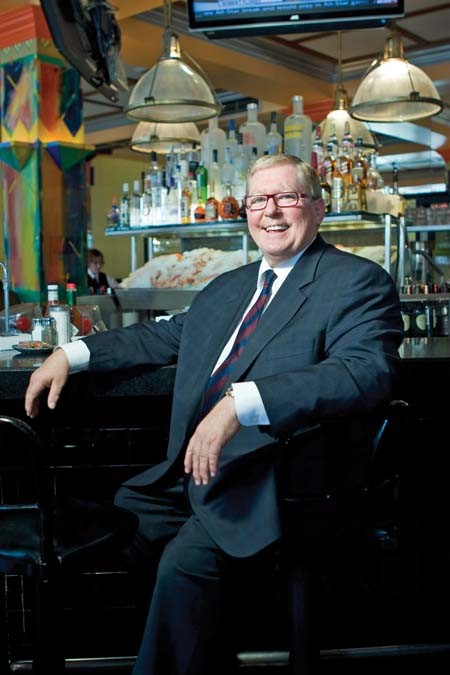
Bob Brown
For Cheers to You owner Bob Brown, the private-club law reflected the lack of separation of church and state in Utah. The influence of The Church of Jesus Christ of the Latter-day Saints was particularly apparent on earlier Utah Department of Alcoholic Beverage Control commissions, he says. DABC commissions under stewards such as Nick Hales, Brown remembers, stridently insisted that getting rid of private clubs meant loosening the liquor laws. He recalls speaking to LDS Church lobbyists and being told, he says, that while LDS Prophet Gordon B. Hinckley was alive, the state “would never get rid of private clubs.” Hinckley died 18 months ago.
What most irritates Brown about the private-club era is how a bar that had never been in trouble would have to close its doors for days or weeks at a time for a first-time liquor-law violation. Brown once challenged the DABC’s Earl Dorius to staff Cheers to You with DABC compliance officers—whose job it is to check on the valley’s bars—on a Friday night. Brown guaranteed there’d be drunks sprawled on the floor before the night was out. Dorius laughed, Brown recalls, and declined his offer.

X-Wife’s Place is a Trolley Square neighborhood bar with more than 50 years of beer-soaked history to its credit. Co-owner Lou Corsillo inherited it with his sister in 1990, having tended bar there as a youth. He compares the private-club era to living behind the Iron Curtain. “It’s Soviet Utah,” he says.
Whether it’s battling in the courts for the right to put a Coors´ beer sign in his window or trying to explain to baffled tourists why they had to pay $5 for a temporary membership when all they wanted was a beer, Corsillo fumes, “The [liquor] laws are regulated by people who have no idea what drinking is.” The biggest problem, he says, is that lawmakers “know nothing about the business.”
Corsillo admits to mixed feelings about the July 1 pub crawl. One of the key concerns cited at hearings on ending the private-club laws was that it would encourage barhopping. “It’s silly to prove that they’re right,” he says.

Restaurant group Gastronomy’s co-founder Tom Guinney pursued a different approach to changing Utah’s liquor laws. He worked “behind-the-scenes” on liquor legislation for 25 years, he says, noting that in his efforts, “words like ‘confrontation’ and ‘battle’ don’t exist. They are not part of the formula for accomplishing change.”
Guinney credits former publisher of The Salt Lake Tribune Jack Gallivan with “having worked on eliminating the private club concept for over 40 years.” In 1968, Gallivan spearheaded an ill-fated “liquor-by-the-drink” ballot initiative, arguing that normalized liquor service would boost Utah tourism. The LDS Church helped defeat the measure. But Guinney recalls Gallivan still organizing against the private-club membership system in the 1980s. “He’s truly a visionary,” Guinney says.
While recalling achievements such as eliminating the mini-bottle and bringing alcohol to the dining table as progress, Guinney doesn’t recall any setbacks in the long, tortured history of battling Utah’s liquor laws. He notes, however, that some “housekeeping issues remain,” especially for hotels. You can’t drink by a hotel pool or take a drink from the bar to your room. If you’re at a hotel wedding reception and want to go out to the garden, you can’t do it with your glass of champagne. “That,” he says, “is unexplainable.”
Keith Biesinger
When Keith Biesinger and a partner in 1984 purchased what is now the Hog’s Wallow in Cottonwood Heights, his neighbors, he recalls, were cows. It was so secluded people would go up on the roof, throw beer bottles in the air and blast away with shotguns. Over the years, he says, big houses have replaced the cows. When he tried to change from a tavern to a private club, he had to get his land rezoned. At a public hearing, neighbors “could make up stories about secondary smoke [from the bar] affecting the lives of their children” and drunken drivers injuring friends—all, he says, “a fantasy.”
Over the years, he’s detected a religious undercurrent to the restrictive atmosphere bar owners face, one where political figures “try and outdo their own church, show I’m more pious than the other representatives,” Biesinger opines. While he admires Gov. Jon Huntsman Jr. ushering in a new era for Utah’s drinkers, he may well revert to being a private club in the months to come. Hog Wallow’s patrons, he says, are split between young people—those in their 30s and 40s and those above 50. If he finds being a social drinking club means lots of young folk filling the bar, “I’ll go back to the way I had it.”